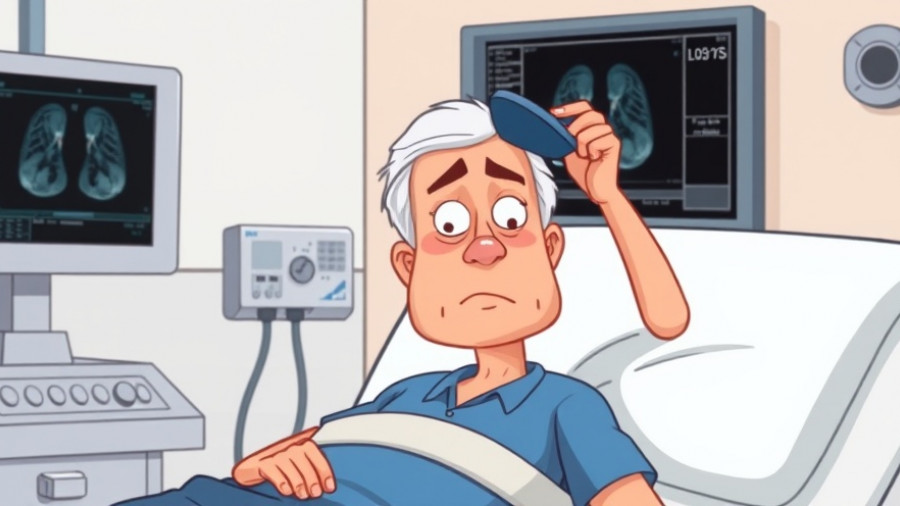
Understanding Delta-8 THC: What Parents Need to Know
Recent years have witnessed a significant surge in the popularity of delta-8 THC products. While it is marketed as being less potent than delta-9 THC—the more commonly known form of tetrahydrocannabinol—this compound has gained traction due to its legal status and availability. Delta-8 THC is often derived from hemp, which is federally legal as long as it contains less than 0.3% delta-9 THC. This legal loophole has made delta-8 products easily accessible in many states where traditional marijuana use remains prohibited, leading to an increase in consumer purchase from smoke shops and gas stations.
What is Delta-8 THC and How Does It Affect the Body?
Delta-8 tetrahydrocannabinol (THC) is a cannabinoid that induces psychoactive effects akin to delta-9 THC but is believed to produce a milder high. According to a study published in the Journal of Cannabis Research, delta-8 THC's potency is about two-thirds that of its more well-known counterpart, making it appealing for those seeking a gentler experience often referred to as "diet weed" or "marijuana lite." By understanding what delta-8 THC is, parents can better gauge its implications, especially for young adults.
Detecting Delta-8 THC: Insights for Parents
As delta-8 THC use rises, many are concerned about whether it can be detected in drug tests—a vital consideration, particularly for those undergoing addiction treatment or participating in recovery programs. Delta-8 THC is not only detectable but behaves similarly to delta-9 in drug screenings. A small amount of it can linger in a person's system for varying amounts of time, depending largely on usage frequency and metabolism:
- Urine Tests: Up to 30 days for regular users.
- Blood Tests: Generally 2 to 12 hours, though it can extend up to 30 days for heavy users.
- Saliva Tests: Up to 72 hours for frequent users.
- Hair Tests: Can detect THC for up to 90 days.
This information is especially crucial for parents who may need to discuss the potential educational and legal ramifications that can stem from drug testing.
The Role of Delta-8 THC in Addiction Treatment
The implications of delta-8 THC extend into the realm of addiction and recovery. As some individuals in addiction treatment might turn to delta-8 seeking a non-traditional outlet, it's essential to highlight that, while it may not be physically addictive, psychological dependencies can form. This is particularly concerning for young adults who may find themselves romantically drawn toward substances leading them back into harmful cycles of use.
Programs emphasizing addiction recovery, such as cognitive-behavioral therapy or holistic addiction treatment, often view any form of THC as a red flag during assessment phases. Treatment teams should educate participants on recognizing reliance on delta-8 THC as a marker for pre-existing addictive behaviors.
Encouraging Open Dialogue
Understanding delta-8 THC requires an empathetic and communicative approach between parents and their children. Encouraging open discussions about substance use minimizes the likelihood of misinformation and fosters a healthier, trust-based relationship. Knowledge is a powerful tool; equipping children and teens with accurate information allows them to make informed choices that prioritize their well-being.
It is essential to discuss why one might opt to use or avoid delta-8 THC while underscoring how it could trigger adverse reactions in individuals prone to addiction. Furthermore, engaging with support networks or resources geared towards substance abuse recovery can provide invaluable guidance to families navigating this complex topic.
Conclusion: Take Action for Informed Decisions
As delta-8 THC continues to grow in popularity, parents have a vital role in promoting informed and cautious attitudes toward its use. Whether dealing with ongoing substance use or engaging with teen exploration, fostering a culture of awareness can prevent future complications.
Consider this information as a starting point for deeper family conversations surrounding the implications of delta-8 THC. For those coaching their loved ones toward recovery from addiction, actionable resources are always available to support a healthy recovery journey.
 Add Row
Add Row  Add
Add 




Write A Comment